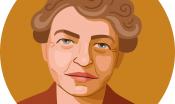text
Literature
March With Me
Letitia and Mae join children leaving school to march in Birmingham, Alabama. Disappointed that they were not arrested while picketing Woolworth’s, they feel reassured by Rev. Bevel, who tells them they made a great contribution to the movement.
October 30, 2014

